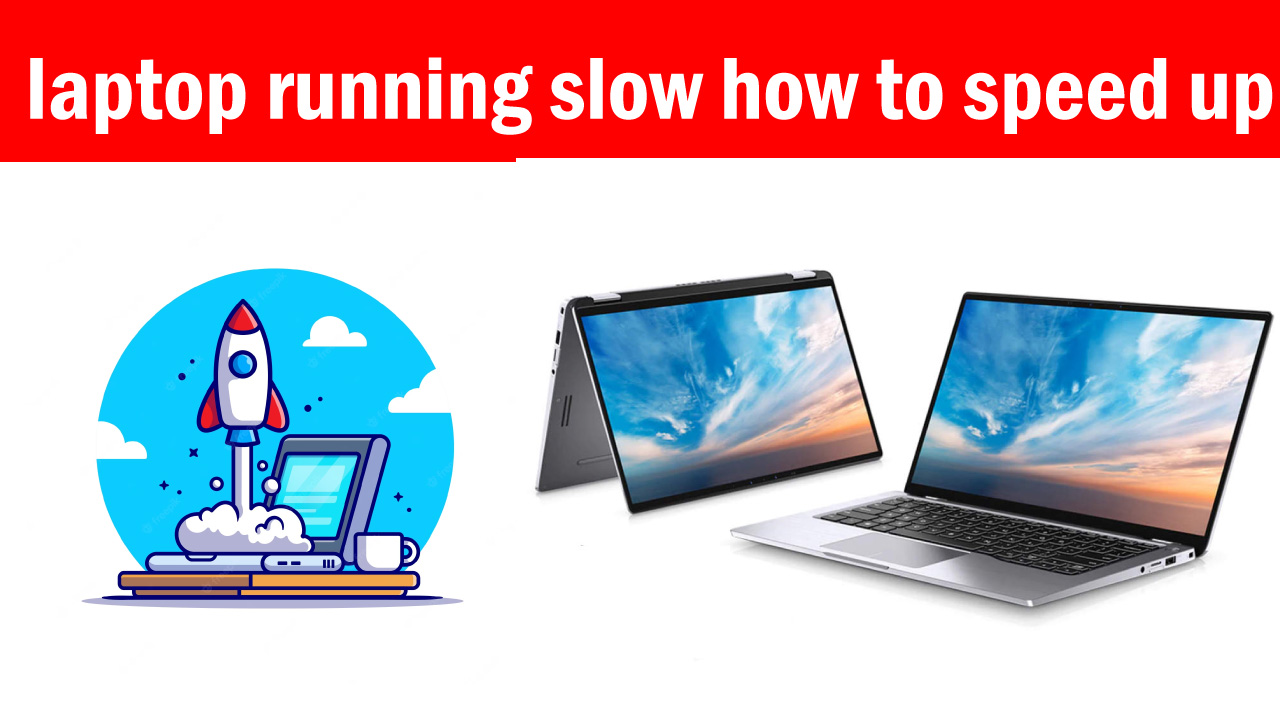laptop running slow how to speed up

Here’s How to Speed Up Your Device If Your Laptop Is Running Slow.
You’re not the only one whose laptop is dragging its feet and driving you crazy. It can be very frustrating to have a slow laptop, especially if you’re trying to work or watch something entertaining. Fortunately, there are a number of efficient ways to give your laptop the boost it requires and get it running smoothly once more. To help you regain your productivity and sanity, we’ll explore some useful tips and techniques in this article for speeding up laptop performance.
Acknowledging the Causes of Laziness.
It’s crucial to determine the causes of your laptop’s slow performance before moving on to the solutions.
This problem may be caused by a number of things:.
1.
Background processes and programs that consume a lot of resources (H2).
Multiple applications are frequently running at once on modern laptops, which can become sluggish when using resource-demanding software. Furthermore, background tasks like automatic updates and system scans can use up important system resources.
2.
Not enough RAM (H2).
Multitasking requires the use of random access memory (RAM). If your laptop only has a small amount of RAM, it might find it difficult to manage several tasks at once, making it sluggish.
3.
Small Storage Area (H2).
Your laptop’s performance may suffer if the hard drive is almost full. Your system has less room to breathe and operate at its best when your storage space is running low.
4.
Vulnerabilities and Viruses (H2).
The security and speed of your laptop can be greatly impacted by malicious software. Background processes that use up resources can be produced by viruses, spyware, and other types of malware.
How to Speed Up Your Laptop Effectively.
Now that we’ve identified the potential culprits, let’s explore the solutions to revamp your laptop’s performance:.
1.
Shut down unnecessary programs and background processes (H2).
If you have a lot of programs running in the background, check your taskbar and system tray, and close any that you’re not using right away to free up some resources.
2.
Increase Your RAM (H2).
Upgrade the RAM in your laptop if multitasking is a problem. Your device’s performance can be greatly improved by adding more memory, enabling it to handle more tasks at once.
3.
Delete Unwanted Programs and Files (H2).
Spring-clean your laptop thoroughly. To free up valuable storage space, delete outdated files, remove unused programs, and clear your browser’s cache.
4.
Setup H2 antivirus software.
By installing reliable antivirus software, you can shield your laptop against viruses and malware. Malicious programs can’t slow down your system if you run regular scans and have real-time protection.
Optimal Performance Through Advanced Techniques.
Consider these more sophisticated techniques if you want to increase the speed of your laptop.
1.
Switch to an SSD (H2).
A Solid State Drive (SSD) can significantly speed up your laptop when you replace the conventional hard drive in it. Faster boot times and smoother overall performance are made possible by SSDs because they are faster and more dependable than HDDs.
2. Visual effects should be adjusted (H2).
There are numerous visual effects included with Windows and other operating systems, and these can drain the system’s resources. Processing power can be significantly increased by modifying or disabling these effects.
3.
Maintain System Updates (H2).
Updating your operating system and drivers on a regular basis can enhance compatibility and security, ultimately resulting in better performance.
Conclusion.
Allowing a sluggish laptop to interfere with your enjoyment and productivity. You can boost your device and experience a quicker, more fluid experience by following these steps. Never forget that keeping your laptop in top condition only requires a little maintenance.
Questions and Answers (FAQs).
1. Why is my laptop acting up so suddenly?
Resource-intensive software, a lack of RAM, a lack of available storage, or malware infections can all contribute to laptop slowness.
2. Can I upgrade the RAM in my laptop myself?
Yes, it is frequently possible to upgrade your RAM, but it is advised to first review your laptop’s specifications and, if necessary, seek professional assistance.
3.
Why should I use an SSD instead of an HDD?
Compared to conventional HDDs, SSDs are faster, more reliable, and offer quicker data access.
4. How frequently should my laptop be serviced?
Every few months, perform routine maintenance on your laptop to keep it operating properly, including clearing out files and updating software.
5. Is it worthwhile to spend money on expensive antivirus software?
Real-time defense against viruses and malware is provided by reputable antivirus software, preserving the functionality of your laptop and the security of your data.
























